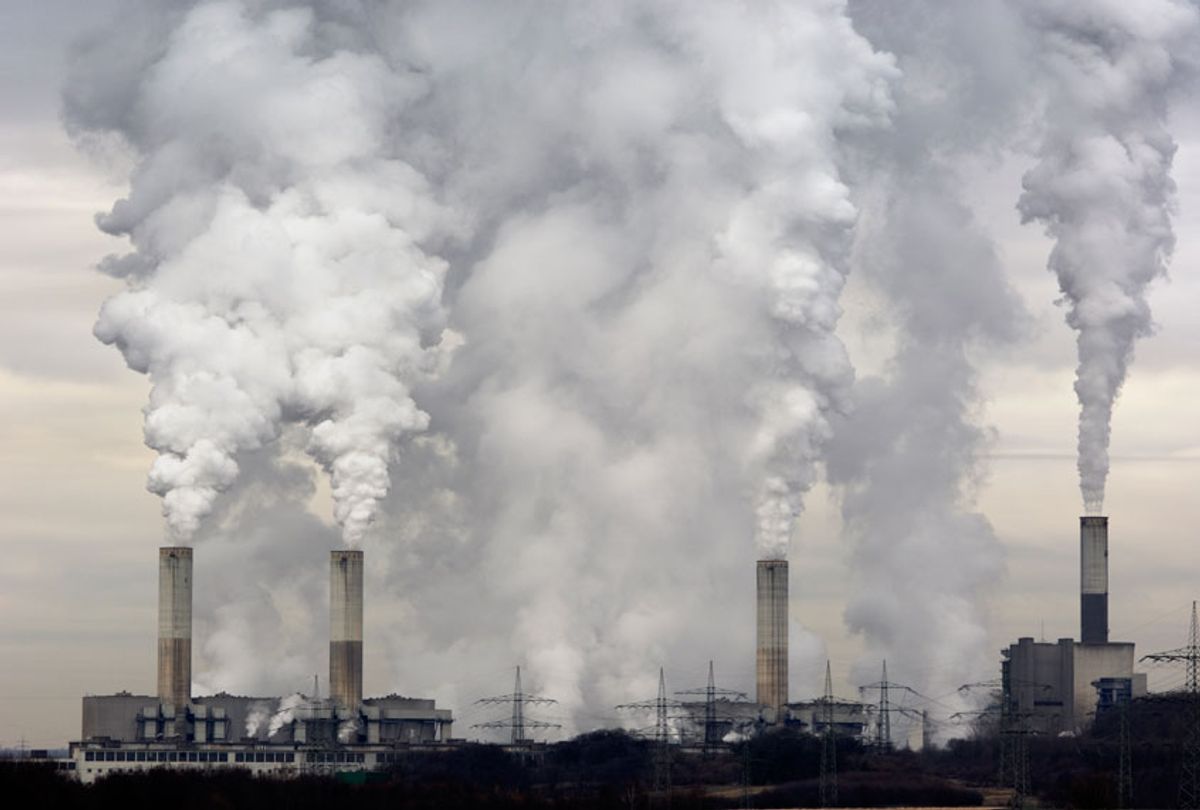Every week now, we're seeing the results of extreme weather in America and across the globe.
Maybe it's even enough to stop some of the oft-repeated Republican denials that climate disruption is real.
There are recent reports that uniform denial is cracking just a bit, if for no other reason than a perceived political liability of insisting that the planet is just fine as it is. They think, let's drill some more oil, burn some more methane and forget about alternative energy sources.
Ending climate change denial is simply inviting the next question: What do you want to do about it?
Therein lies the Republican dilemma. They don't want:
- to back substantial public investments in growing solar and wind energies
- to have mandates about emissions
- to join international consortiums that issue global advice to Americans.
But they want to be seen as Doing Something.
For years, Republicans have been arguing that human-made conditions are not substantially worsening our air, water and weather. At worst, there are ripples in climate over time, they say.
In any case, they don't want to say the American Dream is at risk from climate any more than they want to acknowledge institutional racism, growing classist income inequality or the shortcomings of underinvestment in education.
Whatever label you want to put on it, we're seeing more serious wildfires, more destructive storms and higher floodwaters.
So, my question is the same, "GOP: What do you want to do about what's actually happening now?"
Where Are the Alternatives?
I can understand the criticisms leveled against the big infrastructure packages still gridlocked In Congress over partisan concern. I reject the Republican unwillingness to spend public dollars on public threats, but I can understand that the dollar amounts here are politically frightening.
But I don't hear anything about the alternative. Isn't it wildly expensive to keep shelling out taxpayer monies to dry out Houston and rebuild thousands of homes after a flood or to rebuild those entire California communities consumed by wildfires, only to see them newly at risk a year later? Isn't it bad enough to see one entire apartment building disappear, killing 98, into unsound earth near Miami Beach without considering banning further development in what is clearly becoming much more fragile land?
What do Republicans who insist on twisting human-made rules on voting and gerrymandering want to stay in office to do, exactly?
Climate change remains a low priority for Americans who identify as Republican or lean toward the Republican Party, a Pew Research study now finds. At the same time, Republicans express openness to certain policy proposals to deal with climate change. There are differences in views within the GOP, with moderates and younger adults generally offering higher levels of support for action to address climate change than conservatives and older adults.
Still, only 10% call it a top concern, compared with a much larger share of Democrats and Democratic leaners (49%), according to a recent Pew Research Center survey of U.S. adults. Amid warnings from scientists and activists about climate impacts, there has been little increase in the share of Republicans who see climate change as a threat to the country, in contrast to rising levels of concern among Democrats.
Last February, 24 Republicans gathered in Salt Lake City where they brainstormed ways to get their party to engage on a planetary problem it has ignored for decades. They insisted on anonymity to protect themselves from Donald Trump followers. There is an inkling that to be competitive in national elections, the party will need some type of credible position on climate change.
A Republican Climate Caucus
Now, the anonymous have gone public as House Republicans actually have formed a group on climate change, 50 or so strong, led by Utah Rep. John Curtis. As a group, though, they care as deeply about not harming American economic interests with rules as they say they do about Doing Something about climate.
That means that Curtis and company want private-sector innovation and technology development without the government to do things like capture and store carbon emissions, noting that the U.S. already is a global leader in such things.
My cynicism says this is more about labeling and marketing than it is about widespread practical solutions that are needed to address these climate issues intelligently and forcefully.
It has been interesting to see Europe moving much more quickly than us to adopt big-think commitments to ending fossil-fuel cars and trucks, for example, or to tell energy companies that they must meet a much more aggressive conversion schedule for alternative fuels and emissions.
Indeed, as I have argued previously, our American marketplace is moving toward climate change faster than government policy. Automakers are committing to all-electric fleets. The solar panel industry is struggling mightily to grow despite shortages of needed supplies and barriers in international supply chain requirements. Coal is dying a marketplace death. Oil and gas companies are moving on their own.
The question is about the scale of these changes and the role that we expect our government to play in guiding some kind of intelligence balancing of jobs, training, investment and the like.
Amidst all the foot-dragging toward infrastructure proposals from the Joe Biden White House, I'm having trouble seeing the practical effect of even some Republicans recognizing that climate disruption already has arrived.


Shares